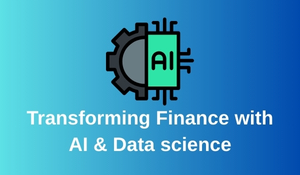
Table of Contents:
- Customer-Centric Personalization through AI
- Data as a Strategic Asset
- AI-Powered Omnichannel Integration
- Enhancing Employee Capabilities
- Rapid Innovation through Tech Partnerships
- Customer Trust & Transparency
- Conclusion
Today, staying ahead is about more than putting new technology into use. It means building a customer-first plan for innovation. Sephora, a global leader in beauty retail, has set a powerful example by embracing artificial intelligence (AI) to revolutionize its customer experience, operations, and brand engagement. The changes at Sephora in product suggestion, virtual trying and data-guided decisions give companies from every industry a clear pathway into what’s awaiting retail tomorrow. This article looks at the major points learned on Sephora’s road to AI and highlights ways any business can profit from them.

Customer-Centric Personalization through AI
Personalized customer experience is one of the most meaningful results of Sephora using AI. With the help of machine learning and lots of customer information, Sephora ensures each person gets what they require. These features make suggestions by studying purchase history, likes and skin color. Improved personalization during shopping encourages customers to stay loyal and regard the business more.
Here is the main lesson for companies Personalization is now essential to staying competitive. AI helps companies in every sector predict what their customers might need, give them the best solutions, and boost their involvement. Building AI efforts around the customer path allows companies to have valuable relationships and keep customers for a long time. When AI is utilized to make shopping easier instead of handling all customer tasks, it becomes the key thing that separates Sephora from others.
Data as a Strategic Asset:
At the center of Sephora’s use of AI is realizing that data is not merely a result of business but a key asset. Sephora gathers customer information from physical stores and its website, such as what is viewed, what is purchased and what products customers prefer. With the aid of advanced analytics and AI, the data becomes insights that help with smart merchandising, personalized marketing and better inventory management.
Companies seeking to do as well should see data as one of their main advantages. If companies focus on data infrastructure, data quality and making decisions based on data, they can achieve important competitive benefits. An AI model’s performance depends on its data and Sephora being able to use its data consistently has been a key aspect of its progress. Organizations from different sectors can also do this by converting raw data into important knowledge, helping to achieve better results at all levels.
AI-Powered Omnichannel Integration:
Sephora connects shopping online and in-store by relying on AI to offer a unified shopping journey. No matter which method customers use, Sephora makes sure each journey is both the same and personalized. Virtual fittings, algorithmic recommendations and advice from beauty experts make interacting with brands easy and enjoyable on any type of device. With the app, a customer may try virtual makeup, receive advice based on past purchases and then collect the product in person.
The main point businesses should know: true digital transformation needs more than new tools—it requires all systems to work together. AI should connect, not fragment, the customer experience. Collecting data from every channel and connecting its storage helps companies design unique, efficient services that lead to more customer loyalty. Any business looking to bring customers first and foster a connection with them should take notes from Sephora’s success.
Enhancing Employee Capabilities:
Sephora uses AI to help customers and employees. Using AI in its work, Sephora provides its beauty advisors with instant data and details about products so they can offer advice tailored to every customer’s needs. With the help of clienteling apps, staff have access to customer information, past orders, and targeted recommendations, ensuring every conversation is helpful for the customer.
The main message for companies is that AI should support human employees, not replace them. Employees become more productive and confident and give better service when they benefit from smart systems. Sharing AI projects in teams leads to new ideas, improves workplace atmosphere, and improves the experience customers have with a company. If employees are empowered, they show pride in the brand and help improve both performance and satisfaction.
Rapid Innovation through Tech Partnerships:
Successful AI at Sephora has relied on the company’s collaboration with technology innovators. Instead of making all their solutions, Sephora teamed up with top tech companies like Modified for AR and AI beauty services. Because of these partnerships, Sephora was able to quickly provide innovative features such as virtual try-ons and skin checking, which its competitors did not offer.
Any company seeking a fast start to innovation should make use of outside specialists. When you collaborate with tech firms, you often save time, spend less and get innovative answers to tough problems. When businesses collaborate, they stay at the front of the market and keep up with changes in customer desires. Sephora shows that you can improve AI technology and maintain speed and quality by collaborating with agile tech partners.
Customer Trust & Transparency:
With the use of AI, Sephora realized that being innovative has to come with trusting its customers. In Sephora’s virtual try-ons and recommendations, all customer data was handled honestly and transparently. The AI firm relied on transparency, users’ approval, and flying by ethical standards as key measures in its operations. Doing things this way helped protect privacy and build trust in the brand for its customers.
Programming Success highlights that companies must have trust in AI to use it effectively. More and more, people are conscious of how their data is handled and want companies to care for this information. Businesses must be transparent about their AI systems—what data is used, how it’s processed, and what value it offers the user. Prioritizing ethics and transparency helps businesses improve relationships, lower risks and ensure their AI-based work will last, just like Sephora managed.
Conclusion:
The AI adoption by Sephora provides an excellent reference for businesses hoping to develop and grow with technology. Sephora has transformed retail by focusing on meeting customers’ needs, treating data as an important resource and adding AI in all its marketing experiences. Supporting the growth of its employees, teaming with other companies to drive growth through technology, and being transparent helps prove that a complete and ethical approach to AI is important. The lessons that matter in the beauty business are helpful everywhere else too. By utilizing Sephora’s plan, businesses in any sector can offer their customers smart, individualized and credible experiences that lead to loyal clients and successful businesses as AI becomes more common.










